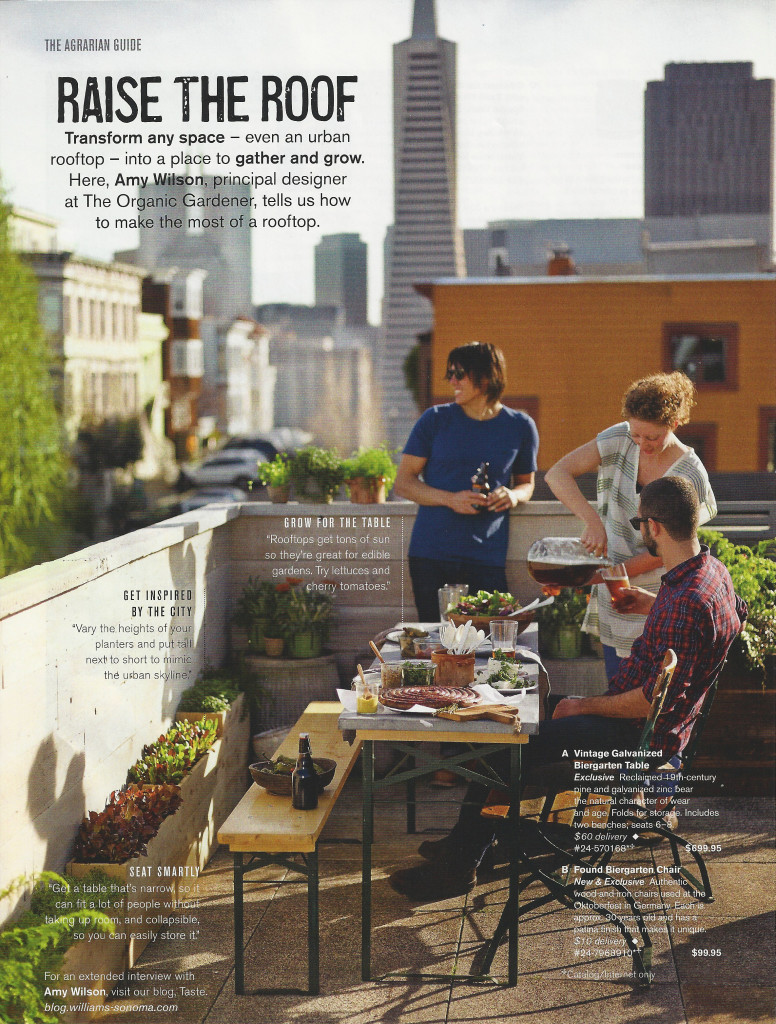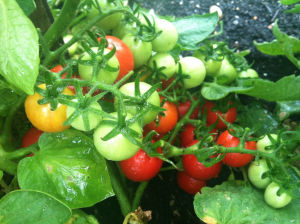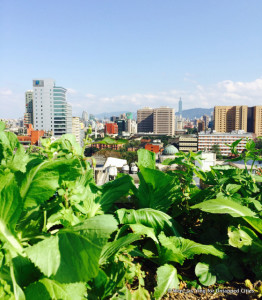par CAROLE THIBAUDEAU, La Presse, 13 mai 2014

Comme tout espace vert, le potager combat les îlots de chaleur et charme par sa beauté et ses parfums
Photo: Digital / Thinkstock
Source: www.lapresse.ca
Un ménage montréalais sur deux cultive au moins un petit quelque chose de comestible, plant de tomate sur le balcon, fraises en jardinière ou potager plus complexe.
«On arrive à 51% des ménages ou 42% des Montréalais, suivant l’un ou l’autre des sondages*», précise Gaëlle Janvier, chargée de projet chez Alternatives, une ressource en agriculture urbaine à Montréal.
«Produire localement des denrées est en train d’entrer dans les moeurs, affirme l’agronome Claude Vallée, professeur à l’Institut de technologie agroalimentaire (ITA), campus de Saint-Hyacinthe. C’est beaucoup plus qu’un engouement passager.»
Pour la plupart des jardiniers amateurs, il s’agit d’«un savoir-faire redécouvert, et non pas hérité des parents», observe Marie Eisenman, cofondatrice des Urbainculteurs, qui distribuent les sacs de géotextile Smart Pots.


